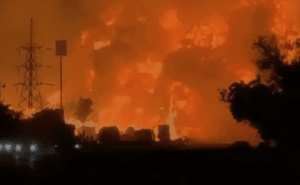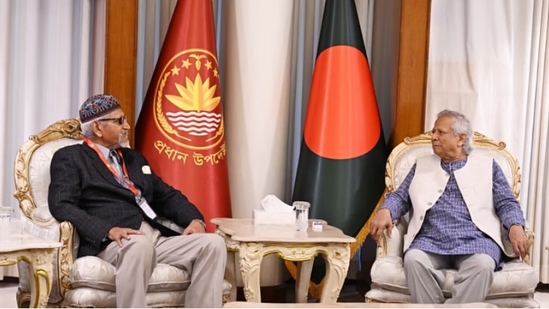In a significant escalation of tensions between the United States and Pakistan, the US government has imposed sanctions on four Pakistani entities, accusing them of contributing to Pakistan’s ballistic missile program. The sanctions, announced by the US State Department, come as part of Washington’s ongoing efforts to curb the proliferation of weapons of mass destruction (WMDs) and ballistic missile technology. In response, Pakistan has strongly criticized the move, calling it unjust and counterproductive to the already strained bilateral relations between the two nations.
The sanctions were announced under the Arms Export Control Act and the Export Administration Regulations, both of which are designed to restrict the flow of sensitive technologies to countries involved in the development of WMDs and missile capabilities. These regulations are part of a broader US strategy aimed at preventing the spread of weapons technology that could destabilize regions and fuel arms races.
The entities affected by the sanctions include both private companies and state-linked organizations based in Pakistan. The US State Department has accused these organizations of engaging in activities related to the development of ballistic missile systems that could potentially be used to deliver nuclear weapons. While the exact names of the entities have not been disclosed, the sanctions specifically target groups that are believed to be involved in the development, production, or transfer of missile technology to and from Pakistan.
The US has long been concerned about the potential for nuclear weapons and missile technology to spread to unstable regions, particularly in South Asia, where India and Pakistan, both nuclear-armed nations, have engaged in frequent territorial disputes. The United States has consistently called on Pakistan to improve its nonproliferation efforts, urging it to align more closely with international arms control regimes such as the Missile Technology Control Regime (MTCR) and the Nuclear Suppliers Group (NSG).
In response to the sanctions, Pakistan’s Ministry of Foreign Affairs issued a statement condemning the decision. The statement emphasized Pakistan’s commitment to maintaining a credible minimum deterrence and maintaining its sovereign right to develop defense capabilities necessary for national security. The government of Pakistan has consistently maintained that its missile and nuclear programs are defensive in nature and aimed at ensuring the country’s security in the face of regional challenges, particularly from India.
Pakistan’s Criticism of US Sanctions
Pakistan’s reaction to the US sanctions was swift and harsh, with officials labeling the sanctions as “unwarranted” and accusing the US of pursuing a policy of double standards. Pakistan argued that its missile and nuclear programs were not intended to pose a threat to any other country but were designed to safeguard its national interests. The statement further asserted that the imposition of sanctions ignored Pakistan’s contributions to global peace and security, including its participation in international counterterrorism efforts and its role in peacekeeping missions around the world.
Pakistan’s Foreign Minister, Bilawal Bhutto Zardari, took to social media to express his dissatisfaction with the sanctions. In a tweet, he stated that the US had ignored Pakistan’s legitimate defense needs and had chosen to penalize a country that had repeatedly demonstrated its commitment to responsible conduct in regional security affairs. Zardari further argued that the US sanctions were more about exerting geopolitical pressure than addressing genuine concerns related to arms proliferation.
Analysts argue that the timing of the sanctions is significant, as it comes amid heightened tensions in South Asia, particularly following the recent increase in military activity along the Line of Control (LoC) between India and Pakistan. The LoC, which divides the disputed region of Kashmir, has been a flashpoint for decades, with both countries regularly accusing each other of violating ceasefire agreements. Some experts believe that the US sanctions are an attempt to deter further escalation in the region and to signal Washington’s disapproval of any actions that might destabilize the balance of power in South Asia.
International Reactions and Future Implications
The US decision to impose sanctions has drawn mixed reactions from the international community. While some countries have expressed support for the US stance, emphasizing the need to prevent the spread of missile and nuclear technologies, others have criticized the move as an infringement on Pakistan’s sovereign rights. The United Nations has called for greater dialogue between Pakistan and the United States to address the underlying issues and prevent further deterioration of relations.
The sanctions may also have broader implications for US-Pakistan relations, which have been strained for years due to various issues, including Pakistan’s ties with China, its role in the Afghan conflict, and its stance on counterterrorism efforts. The imposition of sanctions could complicate efforts to improve bilateral relations, particularly in areas such as trade, defense cooperation, and regional stability.
At the same time, the sanctions may prompt Pakistan to strengthen its strategic partnerships with other countries, especially China, with whom it has enjoyed a long-standing military and economic alliance. This could further align Pakistan’s interests with those of China, particularly in the realm of military technology and infrastructure development.
Conclusion
The US sanctions on Pakistani entities mark a new chapter in the complex and often contentious relationship between the two countries. While the sanctions reflect Washington’s ongoing concerns over the proliferation of missile technology, Pakistan’s response underscores the deep-rooted tensions that continue to shape its foreign policy. With both nations likely to remain entrenched in their positions, the prospects for any immediate resolution appear uncertain, and the issue is likely to remain a point of contention on the global stage in the coming months.
Also Read-1. New Zealand Enters Deep Recession as Economy Faces Worst Downturn Since 1991
2. “Jaipur Tragedy: 5 Dead in Massive Fire After Chemical Truck Crash Near Petrol Pump”
Reference- To Know more Click Here




















One thought on “US Imposes Sanctions on 4 Pakistani Entities for Role in Ballistic Missile Programme, Pakistan Slams the Move”